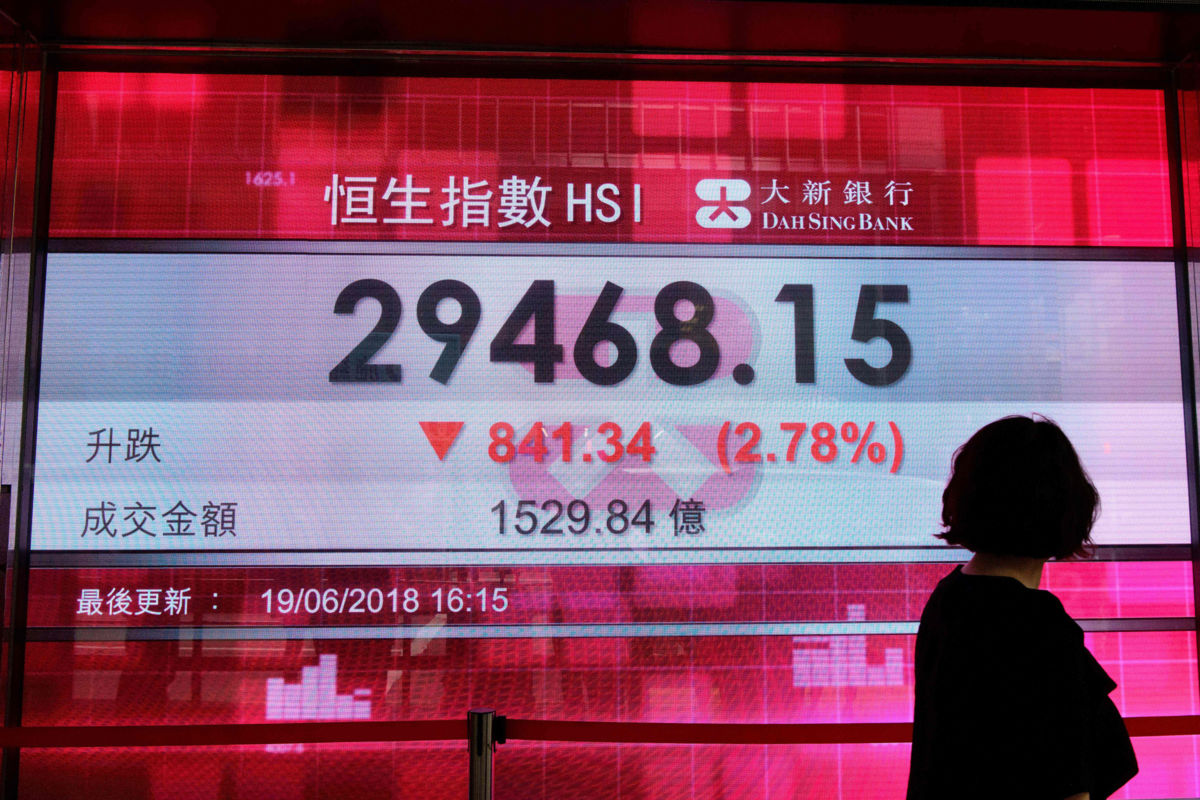Support justice-driven, accurate and transparent news — make a quick donation to Truthout today!
While Donald Trump keeps taking wild shots in his trade wars with China and other countries, the media have been cheering him on in at least one aspect of his campaign. All the elite types agree that “we” have an interest in clamping down on China’s alleged theft of our intellectual property. While some “we” might share that interest, most of the country does not.
Just to be clear on the agenda here, the alleged theft takes three forms. The first is what passes for actual theft. It is when a Chinese company, possibly with help from the Chinese government, literally takes technology from a US company. This can happen, for example, if they infiltrate its internal computer system.
While this is undeniably a bad practice, it is not unique to Chinese companies. In fact, many US companies also engage in such practices. Uber famously agreed to pay Waymo $245 million for stealing some of its software for self-driving cars. It would be hard to know if China’s companies are more guilty in this area than anyone else, but we can agree it is a bad practice that should be stopped.
The second area is forced technology transfers. This is when China requires that US companies, like Boeing or GE, take on a Chinese partner when they set up operations in China. This allows the Chinese companies to gain expertise in the technology used by US companies and then become potential competitors.
The third type of alleged theft is when Chinese companies don’t honor the patents or copyrights of US corporations. For example, this would be the use of software developed by Microsoft without paying it a licensing fee. It could also mean making generic versions of drugs developed by Pfizer or Merck without paying them royalties. And, it means making unauthorized copies of music and movies copyrighted by Disney and Time-Warner.
Our elites are hoping Trump can clamp down on these practices by Chinese companies and better protect the intellectual property of US corporations. But why should this be a concern for the non-elites, as in everyone below the top 5 percent or so of the income distribution?
Let’s start with the issue of forced technology transfer. Boeing is upset, because under the current rules, if they set up shop in China, they are going to have to partner with a company that is likely to be a competitor a few years down the road.
Suppose tough-talking Trump forces China to accept rules that prohibit these mandated partnerships. Under his new deal, if Boeing wants to set up shop in China it just starts building a new facility, no partner needed.
Standard economics would tell us that this will make Boeing and other US companies more likely to set up operations in China. This is obviously good from the standpoint of Boeing’s profits, but why exactly should US workers be happy about a change that will facilitate the outsourcing of US jobs?
There is a similar question about making China pay more money to US corporations for software, pharmaceuticals, and movies and music. In a standard trade model, we would expect that increased payments for intellectual property would mean a rise in the demand for dollars. That means the dollar would rise in value against the Chinese yuan.
With a higher valued dollar, US exports would be more expensive to people living in China, meaning we export less. Chinese imports are also cheaper for people living in the United States, meaning we would import more. The net effect is a larger trade deficit on everything other than intellectual products, which is bad news for those of us who don’t own lots of stock in Pfizer and Merck or work in designing software or developing drugs.
In the wake of the 2018 elections, there were a number of articles that pointed out that the left-behind regions of the country seemed to be the strongest supporters for Trump and the Republican Party. The argument was that the people in these areas are not part of the dynamic sectors of the US economy and they are lashing out by supporting the racist, xenophobic agenda being pushed by Trump. There were also some pieces that offered suggestions on how the rest of us could help the left-behinds.
Helping the regions that are not sharing in the economy’s growth is a long and complex story, but part of the solution would be to design trade policy to make their situation better, not worse, which is what our media is encouraging Trump to do. It is truly incredible that most of the advocates of this trade policy do not even seem to understand the class nature of their agenda, equating the interests of a tiny group at the top with the interests of the whole country.
It sure looks like Trump is not the only one who doesn’t know what he is doing when it comes to trade.
Trump is silencing political dissent. We appeal for your support.
Progressive nonprofits are the latest target caught in Trump’s crosshairs. With the aim of eliminating political opposition, Trump and his sycophants are working to curb government funding, constrain private foundations, and even cut tax-exempt status from organizations he dislikes.
We’re concerned, because Truthout is not immune to such bad-faith attacks.
We can only resist Trump’s attacks by cultivating a strong base of support. The right-wing mediasphere is funded comfortably by billionaire owners and venture capitalist philanthropists. At Truthout, we have you.
Truthout has launched a fundraiser to raise $41,000 in the next 7 days. Please take a meaningful action in the fight against authoritarianism: make a one-time or monthly donation to Truthout. If you have the means, please dig deep.
